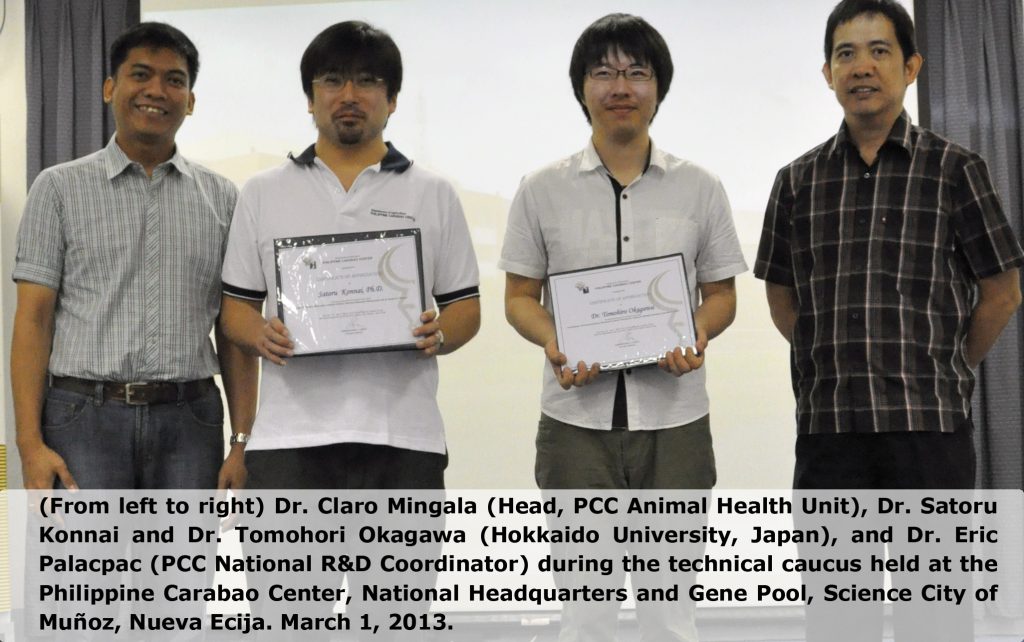Analysis of infectious diseases in the livestock animals is the highlights of two research papers presented during the technical caucus held last March 1 at Philippine Carabao Center (PCC) National Headquarters and Gene Pool, Science City of Muñoz, Nueva Ecija.
The research paper titled “Role of Inhibitory Molecules in Bovine Chronic Infectious Diseases and as Target for Therapy” focused on the analysis of the pathogenesis of an avian disease, Marek’s disease virus, bovine disease, bovine leukemia, and anti-tick vaccine development. This was presented by Satoru Konnai from Hokkaido University, Japan.
During his presentation, he focused on the immunological analysis of bovine leukemia virus (BLV) infection.
BLV, an oncongenic retrovirus (tumor-inducing virus), is the causative agent of enzootic bovine leucosis (EBL). EBL, according to research, is a chronic, transmissible disease identified under the “B” list of the Office International des Epizootes (OIE) making it one of the most important diseases in the livestock industry.
Konnai cited that in Japan, cases of EBL have been increasing because there is still no effective treatment and vaccination against BLV.
After conducting aggressive research, like investigating several inhibitory molecules expression levels by using clinical samples from farms, they found out that the inhibitory molecules have been closely associated with immune exhaustion and disease progression in BLV-infection. In contrast, inhibitory molecules also are potential target for developing immunotherapies against BLV infection.
Another paper “Investigation of immunoinhibitory receptors as novel therapeutic targets for multiple infectious diseases in cattle” was presented by Tomohiro Okagawa, also from Hokkaido University, Japan.
Through this research, they found Johne’s disease in cattle. This is the first detection of its kind in the Philippines. From this result, the study recommended further surveillance of Johne’s disease in the country.
Johne’s disease is the generic term of Paratuberculosis. This type of disease is contagious, chronic, and sometimes results in fatal infection that primarily affects the small intestine of ruminants that leads to death.
The technical caucus is done annually to strengthen collaborations on academic, research, training and other activities of the PCC among different local and international academic institutions.

